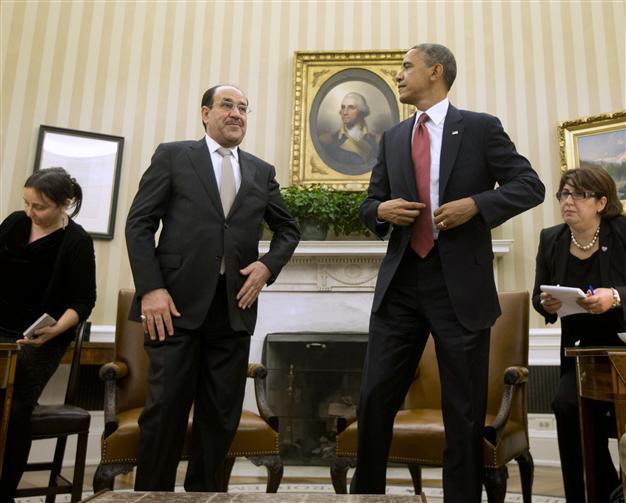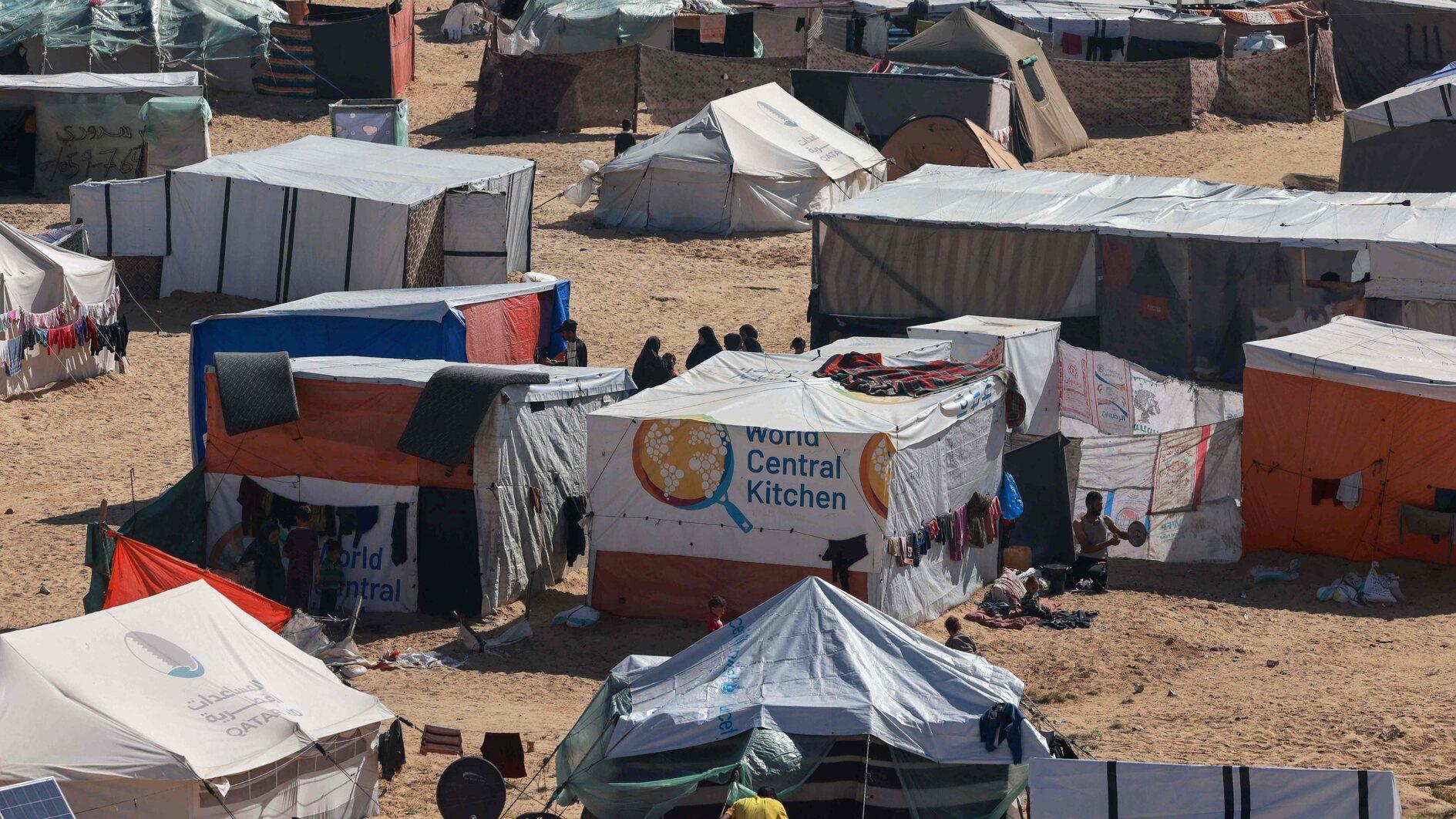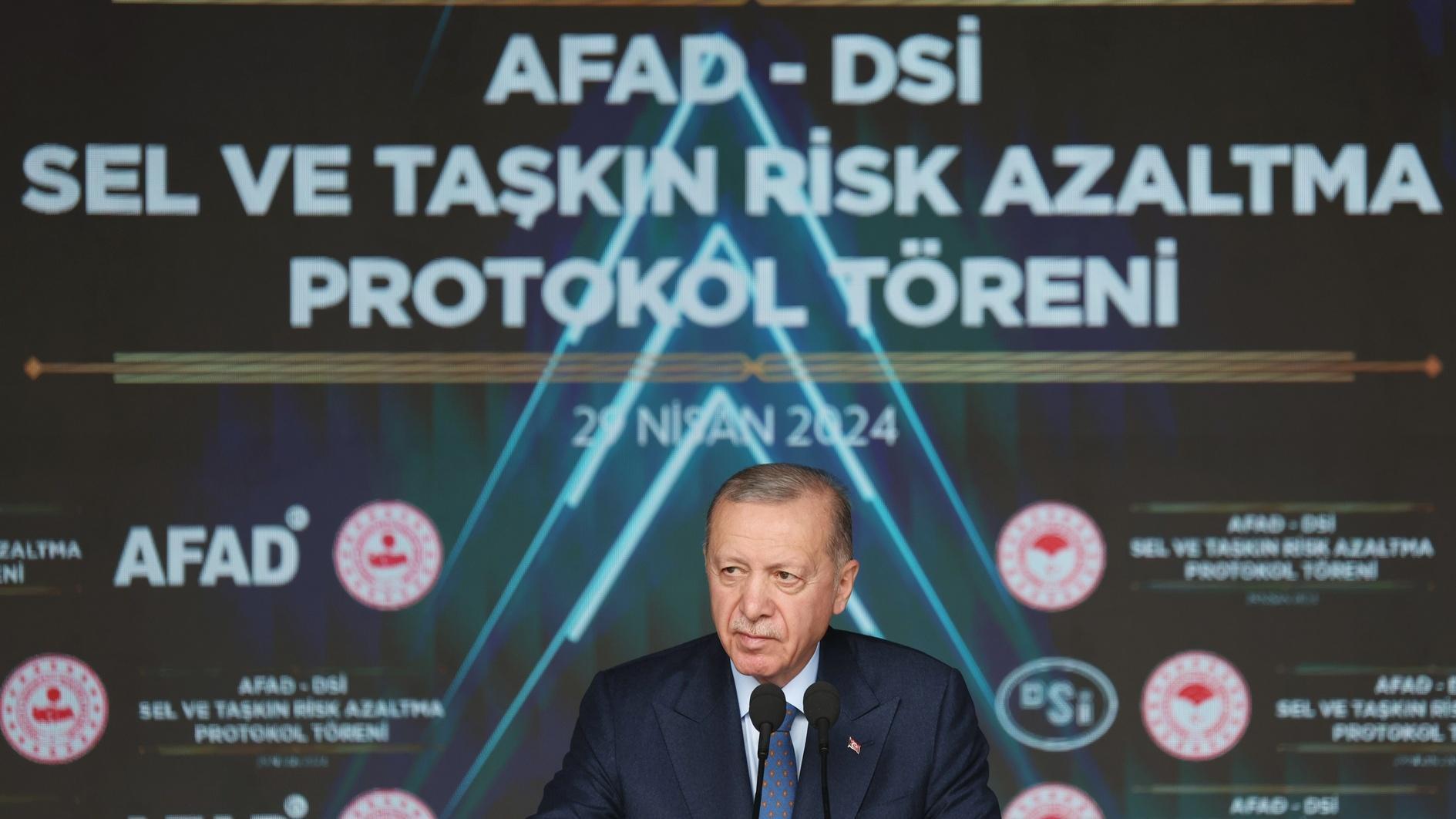Obama tells al-Maliki that US wants 'inclusive' Iraq
WASHINGTON – Reuters

U.S. President Barack Obama and Iraqi Prime Minister Nouri al-Maliki stand up, Nov. 1, following their meeting in the Oval Office of the White House in Washington. AP photo
U.S. President Barack Obama pressed Iraqi Prime Minister Nuri al-Maliki on Nov. 1 to build a more inclusive democracy in his country and said the United States would cooperate with Iraq as it tries to push back a resurgent al-Qaeda.As Iraq experiences a rising spiral of sectarian violence two years after US troops departed following eight years of war, Maliki came to Washington seeking U.S. help to counter a Sunni insurgency revived in part by Syria's civil war next door.
Obama, in White House Oval Office remarks with al-Maliki at his side, made no mention of supplying the U.S.-made Apache helicopters the Iraqis are seeking from the United States.
A statement issued by the two governments said both delegations agreed that Iraqi forces urgently needed additional equipment to conduct operations in remote areas where militant camps are located. But it did not specifically cite military aid.
Apache sale
"We had a lot of discussion about how we can work together to push back against that terrorist organization that operates not only in Iraq but also poses a threat to the entire region and to the United States," Obama said.
He focused most of his remarks on the need for Iraq to take more steps toward an inclusive democracy, such as by approving an election law and holding free and fair elections next year, "so people can resolve differences through politics instead of violence."
Al-Maliki is seeking increased military aid such as the Apache helicopters to suppress sectarian violence, but faces opposition on that front from some U.S. lawmakers.
Six influential senators on Oct. 31 took a hard line against Maliki, saying his mismanagement of Iraqi politics was contributing to the surge of violence in which 7,000 civilians have been killed this year.
Al-Maliki, a Shiite Muslim, has been widely criticized in Iraq and in Washington for failing to give Iraq's Sunnis, Kurds and other minorities a greater role in the country's central government.
The joint U.S.-Iraqi statement noted the Iraqis stressed a desire to purchase U.S. equipment and confirmed its commitment to ensure strict compliance with U.S. laws and regulations on the use of such equipment.
Al-Maliki, said he and Obama talked about how to counter terrorism and that he wanted to strengthen democracy in Iraq.
"We also want to have the mechanism of democracy such as elections, and we want to hold the elections on time, and the government is committed to do so," he said. "Democracy needs to be strong, and we are going to strengthen it because it only will allow us to fight terrorism."
The two leaders also agreed on the need for a peaceful resolution to Syria's civil war and to Iran's nuclear ambitions.
















